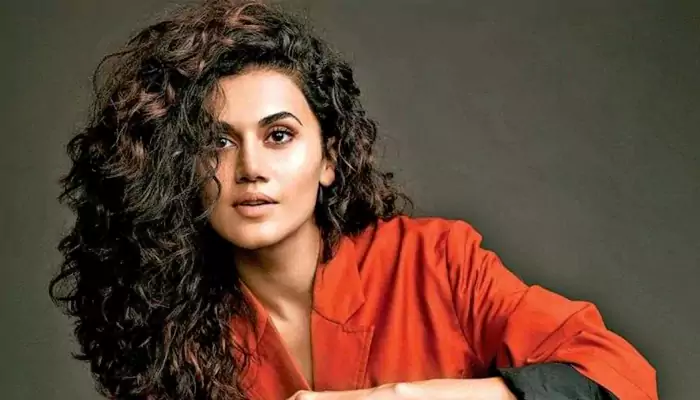
An actor who chooses silence over noise, grit over glamour, and stories that ask questions
Every now and then, Hindi cinema meets someone who quietly shifts its rhythm. Taapsee Pannu is one such presence. On her birthday, it’s worth looking back at the kind of actor—and voice—she has become. Not the kind who dominates tabloids, but one who occupies our thoughts long after the credits roll. Her work has often chosen discomfort over applause and questions over easy answers.

Taapsee didn’t follow the usual route to Bollywood. She was an engineer by training and a software professional by profession. The journey from classrooms to camera sets was never meant to be just about visibility. When she entered the South Indian film industry in 2010, it was with the clear intention of learning her craft. Her Bollywood debut in Chashme Baddoor (2013) may have been lighthearted, but what followed marked a turn.

It’s the choices that set Taapsee apart. In Pink (2016), she played a young woman fighting for the basic right to say no. The film was sharp, urgent, and personal. She followed it with Naam Shabana, Mulk, Badla, and Thappad—films that asked audiences to think about law, justice, memory, and silence. These weren’t roles designed to please everyone. They were meant to spark thought.
In Thappad (2020), she portrayed a woman who walks away from a marriage not because of repeated violence, but because of one slap. That decision—to walk away from “just one mistake”—challenged a whole culture of quiet suffering. It was a role few would have accepted. Taapsee embraced it with calm conviction.
In recent years, Taapsee has leaned into stories that speak of both spirit and physicality. In Saand Ki Aankh (2019), she played one of the world’s oldest sharpshooters. In Rashmi Rocket, she became a sprinter battling invasive gender testing. These stories weren’t just about athletic triumph—they explored dignity, womanhood, and systemic cruelty. She did not simply act in these roles. She trained for them, lived them, and understood what they were meant to represent.

Taapsee’s courage isn’t limited to her films. She has spoken out when others chose to remain silent. Whether it’s about gender pay gaps, typecasting, or political complacency in cinema, her words have been steady, measured, and firm. She doesn’t shout, but she doesn’t look away either. Even in the face of trolling, she has held her ground—without mockery, without bitterness.
In interviews, she often says she chooses scripts that she’d want to watch as an audience. That honesty reflects in her work. She isn’t performing for applause; she’s performing for meaning.
In an industry still caught between legacy and reinvention, Taapsee’s career has become a blueprint for serious cinema with a conscience. She’s not alone in this effort, but she’s certainly consistent. There is no single genre or image that defines her. She shifts between formats—OTT platforms, theatres, biopics, thrillers—with ease. What unites them all is integrity.
Her work continues in this direction, including Phir Aayi Hasseen Dillruba, where romance, mystery, and moral ambiguity intersect again. Even as she works across genres, the audience knows one thing—there will be something to think about.
Taapsee Pannu does not chase legacy. She builds it, film by film, word by word. She is part of a generation of actors who believe cinema is not just a spectacle but a space for reflection. And in doing so, she gives her audience the rare gift of feeling seen.
As she celebrates another year, we celebrate an artist who continues to push herself—and us —further.